Pu-erh tea only serves as an auxiliary healthcare supplement and should not be regarded as a wellness panacea. A balanced diet and proper exercise are the healthiest and most effective ways to maintain well-being.
Taboos of Drinking Pu-erh Tea
▼
As the saying goes: "Drinking tea should suit one's taste," but more importantly, it should align with one's physical condition. In other words, we should choose Pu-erh tea based on our body type. Fortunately, Pu-erh tea comes in raw and ripe varieties, catering to most people.
1. Avoid drinking tea on an empty stomach
Tea can cool the spleen and stomach when consumed on an empty stomach. It dilutes gastric juices, reduces digestive function, and increases absorption rates, leading to adverse components in the tea entering the bloodstream and causing symptoms like dizziness, palpitations, and weakness.
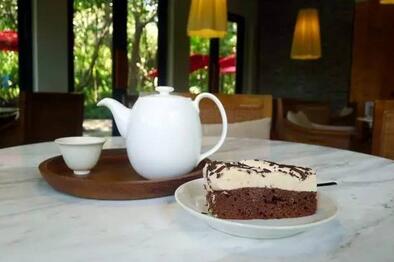
2. Avoid drinking tea immediately before or after meals
Drinking large amounts of tea, especially strong tea, 20 minutes before or after meals is inadvisable. This practice dilutes gastric juices and hinders digestion. Traditional Chinese medicine believes that "bitter and cold substances harm the spleen and stomach." Excessive tea consumption can damage the spleen and stomach, leading to various health issues. "Drinking mild and warm tea ensures longevity," so opting for light and warm tea is better for health.
3. Avoid drinking the first infusion of tea
Due to pesticide residues and other contaminants from cultivation and processing, the first infusion of tea acts as a rinse and should be discarded.
4. Drinking tea at night
One often overlooked taboo for drinking Pu-erh tea for weight loss is consuming it at night. When drinking tea at night, use fewer leaves and avoid brewing it too strong. It's best to drink it after dinner. Drinking tea on an empty stomach can suppress gastric acid secretion, hinder digestion, and even cause severe symptoms like palpitations and headaches, known as "tea drunkenness." People who are emotionally sensitive, have poor sleep, or are physically weak should avoid drinking tea at night.
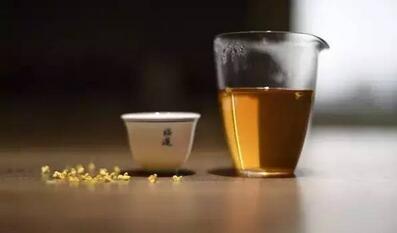
5. Drinking tea while having a fever
Tea contains theophylline, which raises body temperature. Drinking tea while feverish is like "adding fuel to the fire." While weight loss requires persistence, it should be paused during illness.
6. Drinking tea during menstruation
Drinking tea during menstruation can trigger or worsen menstrual syndrome. Medical studies show that habitual tea drinkers are 2.4 times more likely to experience menstrual tension than non-drinkers, and those who drink more than four cups a day are three times more likely.
7. Drinking tea with ulcers
The caffeine in tea stimulates gastric acid secretion, increasing its concentration. For ulcer patients, this can aggravate the condition or even cause perforation. Healthy individuals need not worry.
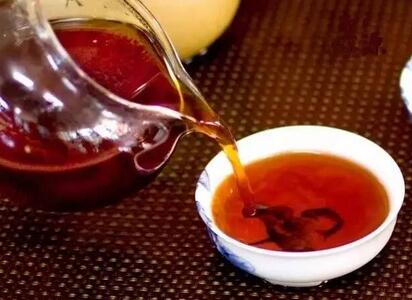
8. Sticking to one type
While long-term consumption of Pu-erh tea aids weight loss, seasonal changes call for adjustments in tea types. Occasionally switching to other teas is beneficial.
9. Keeping tea utensils clean is crucial; don’t forget to wash cups regularly
Some Pu-erh tea enthusiasts enjoy a thick layer of "tea stain" in their cups, believing it enhances the flavor. However, tea stains contain heavy metals and carcinogens, which can hinder nutrient absorption and harm health. Regularly cleaning tea utensils is essential.
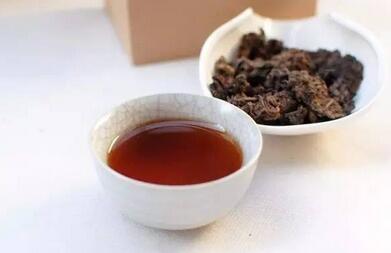
10. Not choosing tea based on body type
Pu-erh tea comes in raw and ripe varieties. Those with weak stomachs should avoid raw tea, while those with excessive yang or blood stasis constitutions should avoid ripe tea. Symptoms like overheating, mouth sores, acne, or constipation may occur. Such individuals should opt for raw tea or add chrysanthemum, lotus leaf, or cassia seed to ripe tea to balance its properties.
Conversely, those with yang deficiency, blood deficiency, or qi deficiency constitutions benefit from ripe tea. Adding ingredients like dendrobium, American ginseng, or red ginseng can enhance its health effects.
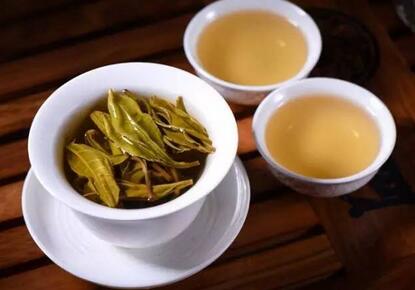
Five 'Natural Enemies' of Pu-erh Tea
▼
Pu-erh tea's health benefits are widely praised, but its unique fermentation process creates distinct flavors, forms, and compositions, making it incompatible with certain foods. These combinations can produce harmful substances and damage health. Below are Pu-erh tea's five 'natural enemies.'
Natural Enemy No. 1—Alcohol
The saying "Drinking tea after alcohol is good for the liver and sobers you up" is misleading. Drinking Pu-erh tea after alcohol worsens discomfort, causing sweating and stomach upset. It increases heart strain and risks accidents. Instead, drink warm milk and rest. Have ripe Pu-erh tea after breakfast the next day to aid stomach recovery.
Natural Enemy No. 2—Protein
Tea's acidic compounds bind with protein, reducing intestinal motility and water content, leading to constipation. Avoid Pu-erh tea for three hours after consuming high-protein foods like beef, milk, or eggs.
Natural Enemy No. 3—Medication
Tea reacts with medications, causing precipitation and reducing efficacy. Avoid tea, especially strong Pu-erh, when taking medicine.

Natural Enemy No. 4—Animal Liver
Animal liver is rich in iron, essential for blood production. Drinking tea with liver reduces iron absorption. Wait a few hours before drinking tea to lower cholesterol and prevent high blood pressure.
Natural Enemy No. 5—Cholesterol-Lowering Vegetables (e.g., Celery, Wood Ear Mushrooms)
Pu-erh tea lowers cholesterol, and pairing it with these vegetables can cause anemia or low blood pressure, weakening immunity and increasing vulnerability to illnesses. Maintain dietary balance.
Everything in nature has mutual checks and balances. Traditional Chinese dietary practices emphasize harmony, such as pairing alcoholic drinks with fried nuts or peanuts to counteract alcohol's cold nature with heat.
Pu-erh tea is a health supplement with proven benefits like cholesterol reduction, stomach protection, and cancer prevention. However, proper consumption is key to avoiding adverse effects.